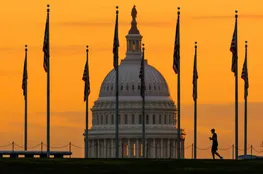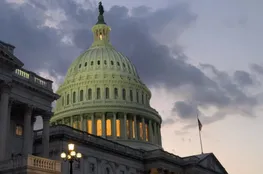In this analysis, we delve into voter behavior trends in the US, drawing insights from the AP VoteCast 2022 survey. One major finding is the influence of perceived economic conditions on voting preferences. Voters who viewed the economy as poor tended to favor Republican candidates for the Senate and House of Representatives, suggesting dissatisfaction with the Biden-Harris administration's handling of economic issues.
Conversely, those who judged the economic conditions as good were more inclined to support Democrats. Interestingly, voters who saw the economy as not so good also leaned towards Democrats, indicating that economic dissatisfaction did not solely determine voting choices. On social policies, the survey highlights that voters who oppose abortion, downplay racism, or are less concerned about COVID-19 are more likely to vote Republican. Increased border security advocates also favor the GOP.
Demographically, men are statistically more Republican, while women, non-binary people, and racially diverse groups such as Black, Latino, and Asian voters tend towards Democrats. Furthermore, higher income individuals tend to vote Republican, though higher-educated people within any income level tend Democrat, suggesting education influences political leanings despite income. Age shows a pattern with Republican favoritism peaking among voters aged 50-64. This behavior trails off slightly among people 65 and older, who still primarily vote Republican.
Among Hispanic voters, Cuban Americans exhibit higher GOP support likely due to specific foreign policy issues such as relations with Cuba. Pop culture influences are notable too. For example, Taylor Swift's fans generally support Democratic candidates, reflecting broader demographic and cultural trends. Her endorsements align with key liberal causes, appealing particularly to younger, socially conscious voters.
Evaluating these factors is crucial for understanding voter dynamics. For the 2024 elections, while economic conditions may challenge Democrats, social issues like abortion remain pivotal. Kamala Harris, closely resembling the typical Democratic voter profile, has invigorated Democratic enthusiasm over Joe Biden. However, problems remain with key demographics, like Black men, increasingly aligning with Republicans—a trend predating Harris’s candidacy.
The intersection of economic dissatisfaction and contentious social issues played a considerable role in the unexpected results of the 2022 midterms. While Republicans may have traditional economic advantages, Democrats seem buoyed by responses to the Roe v. Wade ruling and other vital social issues. This underscores the complex interplay of economics, policy issues, and demography in shaping US electoral outcomes.
























